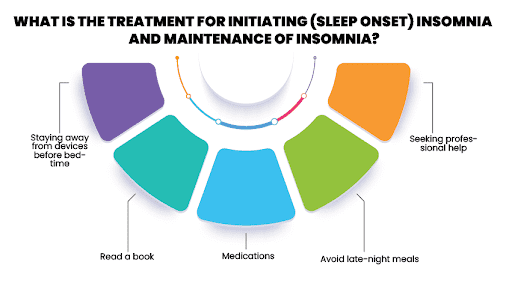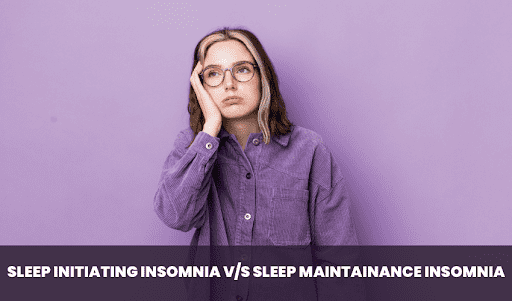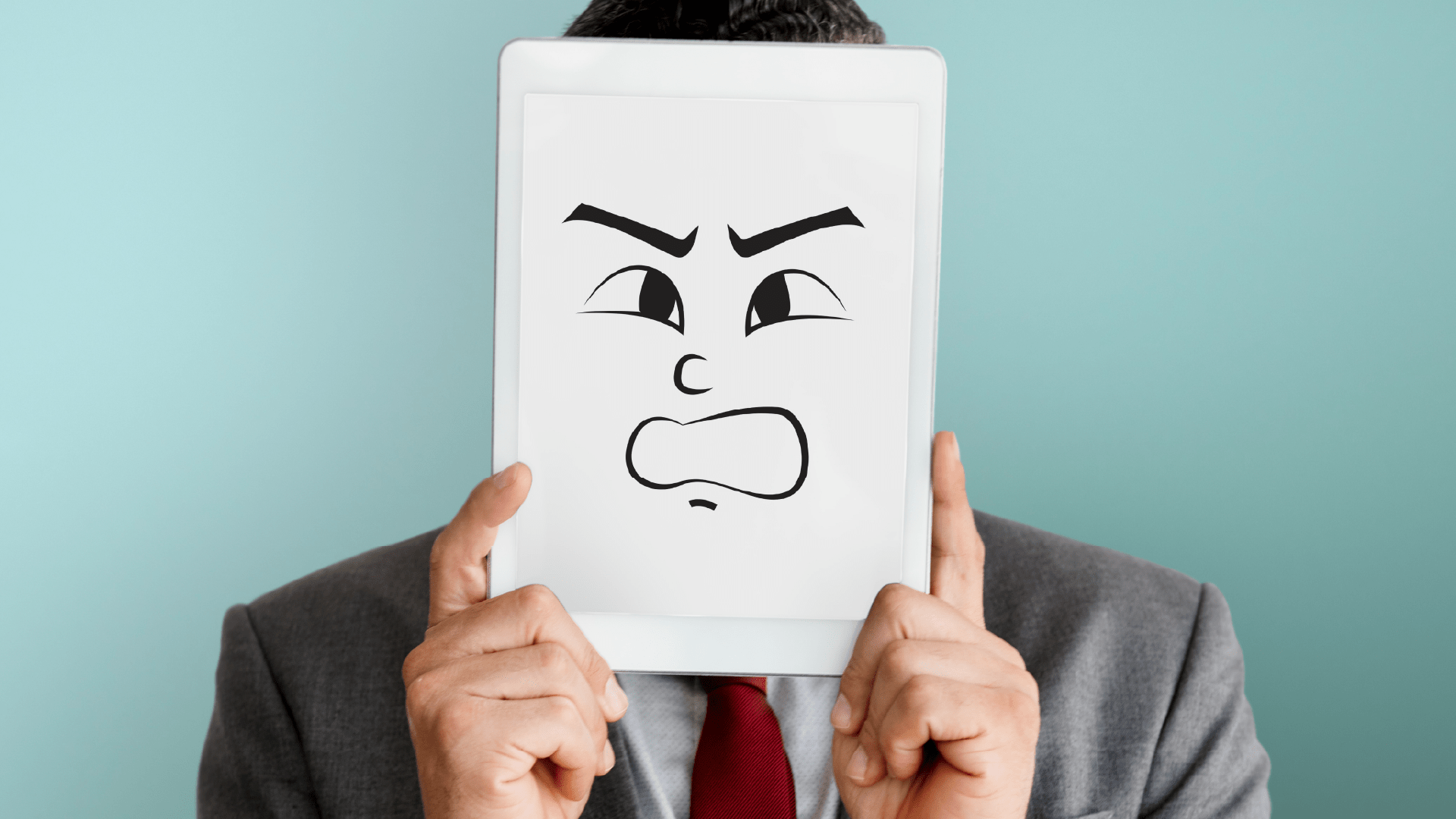Introduction
Do we stay awake for long hours during the night, find it difficult to fall asleep even when we are exhausted and do we go to bed ready to sleep but cannot do so? Do we fall asleep but wake up multiple times during the night? We may be suffering from insomnia particularly sleep-initiating or sleep-maintenance insomnia. It affects our sleep quality and other parts of our life and health. Read more about these types of insomnia, their treatment, and what we can do about it.
Our Wellness Programs
What is sleep-initiating (sleep onset) insomnia?
Sleep-initiating insomnia is also called sleep-onset insomnia. It is a condition where one is unable to fall asleep. The reasons attributed to sleep onset insomnia include high stress, anxiety, feeling low, depression and intrusive thoughts. Insomnia is often temporary or can be prolonged and become chronic. A person cannot sleep even when ready, which is often both an acute and established long-term sleep disorder. Sleep onset insomnia can cause loss of focus, excessive sleepiness during the day, irritability and trouble holding and engaging in conversations.
An issue where one cannot sleep even when they want to characterise sleep-initiating insomnia. People eventually fall asleep, but the excessive time taken causes a reduction in sleep and reduces R.E.M.’s sleep capability, which is essential for recovery after a difficult day.
Numerous triggers, including sudden stressors, changes in sleep routine, changes in lifestyle, and changes in location and environment not conducive for sleep, can trigger sleep-onset insomnia. High regular intake of stimulants, lack of exercise, poor diet, and numerous distractions and devices in the room hinder sleep.
Medical conditions such as respiratory ailments, CKD, heart problems, and sleep apnea may also cause sleep-onset insomnia.
Looking for services related to this subject? Get in touch with these experts today!!
Experts

Neelam Parwani

India
Life Coach
Experience: 5 years

Sapna Zarwal

India
Psychologist
Experience: 19 years

Deepti Gandhi

India
Life Coach
Experience: 6 years

Zabby Sharma

India
Life Coach
Experience: 11 years

Ritu Singh

India
Life Coach
Experience: 16 years
What is sleep maintenance insomnia?
Sleep maintenance insomnia characterises an inability to stay asleep for longer during the night. It means the person cannot sustain sleep for a long time, may wake up multiple times during the night, and take a long time to fall asleep again. Sleep maintenance insomnia affects the quality and quantity of sleep. It reduces and causes sluggishness, fatigue, and insufficient energy during the day.
A person may not be able to wake up early in the morning and may feel very tired and irritated. Medical conditions, such as GERD, sleep apnea, restless leg syndrome, periodic limb movement disorder, nighttime urination, and depression, may cause sleep maintenance insomnia.
A common characteristic is waking up more than 3 to 4 times a night, at least 3 to 4 times a week for at least 3 to 4 months. Sleep maintenance insomnia causes fragmented sleep. It, in turn, affects one’s mental, physical, and emotional health and causes headaches and confusion.
Stress is a major causative factor for sleep maintenance insomnia. The body is very stressed and is constantly in flight or fight mode. It does not allow any kind of relaxation and leads to a very high heart rate, fast breathing, great mental alertness, and thoughts that do not allow the body to sleep.
Difference between sleep initiating (sleep onset) and sleep maintenance insomnia?
- Sleep initiating and maintenance insomnia are chronic insomnia disorders. A person with sleep-initiating insomnia can’t fall asleep, and it takes a long time for them to fall asleep. Excessive pain, existing chronic conditions, disturbance in the sleep cycle, restless leg syndrome, anxiety, and drugs can also cause sleep-initiating insomnia. Sleep maintenance insomnia is a sleep disorder characterised by fragmented sleep patterns.
- Sleep-initiating insomnia causes a lot of tiredness and fatigue, and one may find it difficult to wake up early. Sleep maintenance insomnia may also cause disturbances.
- Both symptoms overlap, but the significant difference is the time one falls asleep and how long one sleeps.
- Usually, one gets very fragmented sleep in maintenance and initiating insomnia. One may get sleep for an extended period in sleep, prompting insomnia, but there are less frequent sleep cycles in sleep maintenance insomnia because of high fragmented sleep.
Effects of sleep initiating (sleep onset) insomnia and sleep maintenance of insomnia?
- Sleep onset insomnia can cause numerous symptoms in individuals. These include depressive feelings, feeling low, frequent mood swings, irritability, confusion, dizziness, loss of libido, and poor mental health.
- Sleep maintenance insomnia, when left untreated, can cause significant stress on our physical, emotional, and social wellbeing. One may feel constantly irritated, may not be able to focus on any kind of work, fall asleep during the day and lose memory.

Treatment for sleep initiating (sleep onset) insomnia and sleep maintenance insomnia?
1. Staying away from devices before bedtime
It’s essential to stay away from devices before bedtime. It means one must switch off phones, laptops, etc. Even if we cannot sleep, it’s important to not turn on our devices at night because the blue light from these devices can affect sleep hormones such as melatonin and serotonin. Always maintain a dark room and create a sleep-inducing environment.
2. Read a book
Read a book before bedtime. Several research studies have shown that reading before bedtime can help you fall asleep. It’s important not to choose very engaging books. Some light reading before bedtime can help sleep with ease.
3. Listen to peaceful music and perform sleep asanas
Listening to peaceful music, doing guided meditation, practising yoga Nidra, and breathing exercises during nighttime can be one way of sleeping well. Put on some white noise or use sound-cancelling earphones, focus on breathing, and do sleep exercises. These will relax, calm, and eventually, lull us to sleep.
4. Avoid late-night meals
Another important way of treating sleep-initiating insomnia is avoiding any kind of meal before bedtime. Keeping at least a two-hour gap between rest and dinner time ensures the food digests, and we do not suffer from heartburn and belching issues.
5. Medications
Medications are the first line of treatment for insomnia. Sleep medications are very effective, provide immediate relief, and help keep us asleep longer. It is perfect for times when we are very stressed or going through anxiety or depressive episodes. However, sleep medications have a lot of side effects, and long-term usage can cause dependence. It’s essential to consider the dosage and speak to a doctor about it, and gradually work on reducing the dosage.
6. Seeking professional help
Seeking professional help from counsellors and therapists can be a great way of treating sleep maintenance and sleep-onset insomnia. Practitioners usually use Cognitive Behavioural Therapy for insomnia. It helps improve sleep hygiene, provides relaxation training, enables us to reduce our medication content and addresses the underlying issues of sleep. It also addresses mental health issues that may be preventing us from sleeping.
Conclusion
These are a few ways to treat sleep onset and maintenance insomnia. One can overcome these conditions with proper care, lifestyle medications, good routines, and vital sleep hygiene. It may not happen overnight. A mix of all these is an effective way of treating both these kinds of insomnia. If you want to learn more, the mental health professionals at United We Care are happy to assist you!
| [1] | F. Hohagen, C. Käppler, E. Schramm, D. Riemann, S. Weyerer, and M. Berger, “Sleep onset insomnia, sleep maintaining insomnia and insomnia with early morning awakening--temporal stability of subtypes in a longitudinal study on general practice attenders,” Sleep, vol. 17, no. 6, pp. 551–554, 1994. |
| [2] | L. Van Egeren, S. N. Haynes, M. Franzen, and J. Hamilton, “Presleep cognitions and attributions in sleep-onset insomnia,” J. Behav. Med., vol. 6, no. 2, pp. 217–232, 1983. |


















